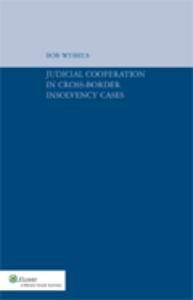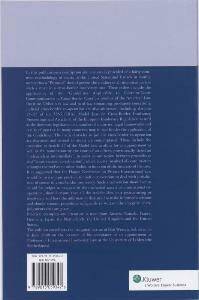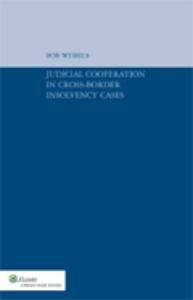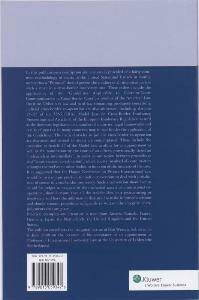
- Afhalen na 1 uur in een winkel met voorraad
- Gratis thuislevering in België vanaf € 30
- Ruim aanbod met 7 miljoen producten
- Afhalen na 1 uur in een winkel met voorraad
- Gratis thuislevering in België vanaf € 30
- Ruim aanbod met 7 miljoen producten
Zoeken


€ 28,85
+ 57 punten
Omschrijving
In this publication a description and analysis is provided of a fairly common methodology of courts in the United States and Canada in issuing orders that a "Protocol" should govern the conduct of all interested parties with a stake in a cross-border insolvency case. These orders include the application of the "Guidelines Applicable to Court-to-Court Communications in Cross-Border Cases", a product of the American Law Institute. Other soft law and hard-law containing provisions concerning judicial cross-border co-operation are also addressed, including Articles 25-27 of the UNCITRAL Model Law on Cross-Border Insolvency Proceedings and Article 31 of the European Insolvency Regulation as well as the domestic legislation of a number of countries. Legal frameworks and reality of practice in many countries may in fact hinder the application of the Guidelines. The main obstacles to judicial cross-border co-operation are discussed and several solutions are contemplated. These include the extension of Article 27 of the Model Law to allow for co-appointment as well as the nomination by the court of an officer, provisionally titled an "independent intermediary", to assist co-ordination between proceedings and "court-centred coordination", where courts involved allocate matters amongst themselves or other bodies in function of the interests of the case. It is suggested that the Hague Conference on Private International Law would be in a unique position to draft a convention to deal with jurisdiction of courts in cross-border insolvency. Such a convention should act as an aid for judges to navigate in the uncharted waters of international co-operation, should ensure that all the stakeholders in a restructuring or insolvency will have the information they need to make informed decisions and should contain procedural safeguards to warrant the integrity of the judgments that are given.
Practical examples and literature is used from Austria, Canada, France, Germany, Japan, the Netherlands, the United Kingdom and the United States.
The publication reflects the inaugural lecture of Bob Wessels, delivered on 6 June 2008 on the occasion of his acceptance of an appointment as Professor of International Insolvency Law at the University of Leiden (the Netherlands).
Practical examples and literature is used from Austria, Canada, France, Germany, Japan, the Netherlands, the United Kingdom and the United States.
The publication reflects the inaugural lecture of Bob Wessels, delivered on 6 June 2008 on the occasion of his acceptance of an appointment as Professor of International Insolvency Law at the University of Leiden (the Netherlands).
Specificaties
Betrokkenen
- Auteur(s):
- Uitgeverij:
Inhoud
- Aantal bladzijden:
- 47
- Taal:
- Engels
Eigenschappen
- Productcode (EAN):
- 9789013059342
- Verschijningsdatum:
- 10/09/2008
- Uitvoering:
- Paperback
- Afmetingen:
- 159 mm x 249 mm
- Gewicht:
- 120 g

Alleen bij Standaard Boekhandel
+ 57 punten op je klantenkaart van Standaard Boekhandel
Beoordelingen
We publiceren alleen reviews die voldoen aan de voorwaarden voor reviews. Bekijk onze voorwaarden voor reviews.












